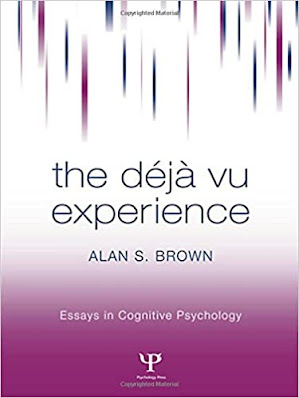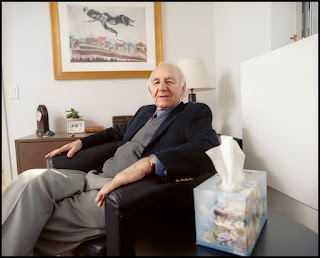Literature Review #1
Visual
Citation
Brown, A. S. (2004). The Déjà Vu Experience. New York, NY: Psychology Press.
Summary
The Déjà Vu Experience provides a general background of the déjà vu phenomenon and clarifies why people experience déjà vu. The book focuses on parts of the brain while discussing cognition and neurophysiology. The book also includes different experiments and cases regarding déjà vu.
Author
Alan S. Brown is a Professor of Psychiatry and Epidemiology at Columbia University Medical Center, the New York State Psychiatric Institute, and the Joseph L. Mailman School of Public Health. Dr. Brown’s main research includes the identification of early antecedents for schizophrenia, autism, and bipolar disorder. His research focuses on the brain and how the brain functions which allows him to understand the déjà vu phenomenon.
Key Terms
One key term I found is “unconscious” which relates to the unconscious mind. The unconscious mind holds unpleasant feelings such as anxiety, pain, and conflict. It can also hold our repressed feelings or hidden memories, and this in some form could be a déjà vu experience.
Another key term is “false memory phenomenon” which is when people remember events differently from the way it happened or in other cases individuals will make up events as if it actually happened.
Three Quotes
“When Brown et al. (1994) asked respondents to evaluate what the dupli- cated experience in their typical déjà vu seems to relate to, nearly twice as many respondents said a real event (38%) than a dream (22%), although many indicated that it could be either (40%). It is quite likely that the sense of unreality that pervades the déjà vu experience makes it resemble a dream, leading individuals to logically assume that the strange sensa- tion of familiarity originates from this state (cf. Krijgers Janzen, 1958)” (Brown 75).
“Freud first speculated that déjà vu represented a recollection of an unconscious fantasy coupled with a desire to improve the present sit- uation (Freud, 1901). He subsequently proposed that déjà vu reflected castration fantasies and the accompanying anxiety associated with this unpleasant perception (Freud, 1914). Still later, Freud suggested that déjà vu is associated with depersonalization and derealization, and reflects a positive counterpart of these phenomena (Freud, 1936)” (Brown 125).
“Several investigations have scrutinized the relationship between déjà vu and dream frequency (Buck & Geers, 1967; Kohr, 1980; Neppe, 1983e;Palmer, 1979; Zuger, 1966). Zuger (1966) asked respondents whether they experience déjà vu and remember their dreams, and a striking relation- ship emerged: all 10 respondents who reported no dream memory also reported no déjà vu experiences, and all 36 respondents who reported déjà vu also reported remembering their dreams (nine reported dream memory but no déjà vu)” (Brown 75-76).
Value
This book allows me to dive deeper into the déjà vu phenomenon, and how it relates to dreams and the unconscious mind.


This looks good. I like the quote that people who remember their dreams are most likely to have deja vu experiences, which seems to connect to Freud's view that the deja vu recalls unconscious fantasies -- or possibly dreams.
ReplyDeleteYou should look at some more current material. This book looked good:
Moulin, Chris. The Cognitive Neuropsychology of Déjà Vu. 2018